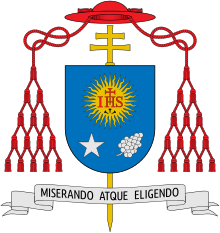On retreat and reflection
by Rachel Bundang
Today we can illuminate our cities so brightly that the stars of the sky are no longer visible. Is this not an image of the problems caused by our version of enlightenment? With regard to material things, our knowledge and our technical accomplishments are legion, but what reaches beyond, the things of God and the question of good, we can no longer identify. Faith, then, which reveals God’s light to us, is the true enlightenment, enabling God’s light to break into our world, opening our eyes to the true light.
— Benedict XVI, homily for the Easter Vigil (2012)
One does not typically review a retreat, as if it were a book or a film that others could readily seek out if they found the premise intriguing. By its very nature, a retreat is such an interior and singular experience of encounter that the retreatant alone determines its meaning and significance from the silence of the heart. So let’s chalk this essay up under the “Catholic Studies” part of what the Lane Center does.
I recently had the occasion to attend a retreat led by Br. Guy Consolmagno, director of the Vatican Observatory. It was equal parts a critical need for some time away to think and reflect on some knots in my life, plus curiosity about the man and his work, plus the sudden opportunity. Br. Guy first crossed my path through his interviews on shows with Stephen Colbert, Krista Tippett, and Neil DeGrasse Tyson. The brilliance and humor that he displayed in those shows were indeed real. I don’t know whether he would use these same words, but I described him to friends later as “a joyful nerd”… and that is meant as every bit a compliment. He also exuded an easy wonder and awe for the work he gets to do in his dual vocation of religion and science. He had the air of one who now had no need to question that he really was where he was truly called to be. To harken back to Robert Frost’s “Two Tramps in Mud Time,” Br. Guy’s love and need are clearly one, uniting his avocation and vocation.
If it were Oprah doing the talking, she would say that the man is “living his best life.”
Br. Guy covered a great deal of territory in his talks through the weekend. From the whole retreat, I wish to highlight three elements.
First, there is the practice of reverence for nature. Br. Guy used Benedict XVI’s Easter vigil homily to reinterpret for us the creation story in Genesis 1. In our age of electricity, he says, we rarely experience light and dark in their natural state. The artificial light disrupts ecosystems and sleep patterns. Unmoored from a simpler economy ruled by natural day and night, we work stressful jobs in order to afford the electricity and, by extension, the rest of our modern material lives, ultimately making us less self-sufficient. The artificial light, oddly enough, masks our fears– whether of darkness or pain or other unknowns– so that we make the mistake of equating light with safety. Br. Guy reminds us that it is only in the places far from the city that we can see what light actually looks like. Returning to Gen 1, he shows God already there at the beginning, supernatural and beyond time, deliberately creating the universe. In creating light first, God insures that all creation is out there for us to see. Real light, according to Br. Guy, makes knowledge, freedom, and faith all possible.
Next, there is the practice of community. We are a people who believe in the communion of saints– a community that crosses both space and time. A retreat like this was, on the most obvious level, an experience of being among fellow seekers– fellow saints already– being cared for in the simplicity of Jesuit hospitality. Just as many faithful never grow past a child’s understanding of religion, many educated people have likewise not grown past a rudimentary understanding of science. We remain largely ignorant of how the cosmos actually works. Br. Guy reminds us that science is not about facts, but rather about understanding. He claims, “We are all scientists… and we are all priests.” In our scientific and priestly roles in the world, it is our charge to pay attention to how the universe works, to learn from its mysteries, and to promote understanding. In other words, we are called to practice both intellectual and spiritual generosity as acts of faith and community.
Lastly, we have the practice of silence and space. I am most decidedly an urban creature who would likely not survive off the grid. And yet there was great ease to be had in unplugging, in taking a silent meal if desired, in letting the rocks and trees and rain renew a life force that had been crushed and gone dry. We were even invited one evening, through the break between storms, to engage in stargazing as prayer. We could stay up as long as we wished, to look deeply into the heart of space and time, and feel humbled and alive in the midst of creation’s goodness.
Going on retreat gives us the chance to remember that God is indeed present in all things– even in things that we might consider dark or bereft of life. For Br. Guy, astronomy is prayer. There is no conflict between religion and science. Rather, science is worship, a way to witness the unfolding of the glory of God, revealed in an ongoing fashion.


